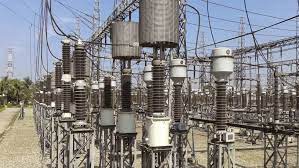The Chartered Institute of Power Engineers of Nigeria (CIPEN) has vowed to arrest and sanction quacks as part of measures to sanitise the power sector.
President of the institute, Israel Abraham, who issued the threat at the inauguration of the institute and its governing council in Abuja recently in Abuja, said there was an urgent need to sanitise the power sector and as such, punitive measures must be adopted to save it from collapse.
“We will soon set a deadline for people in the sector to be certified because the institute has the onerous mandate to professionally drive the Nigerian power sector’s efforts towards realising the Nigerian Electric Power dream,” he said.
Abraham said the institute’s deliverables were premised on its 10 Technical Study Guide (TSG) which would be supported by statutory committees chaired by industry experts or academics.
“The institute controls, regulates, and determines the standard of knowledge and skills to be attained by people seeking to be Chartered Power Engineers and for persons seeking to become members of the power engineering profession and related matters. This implies that the institute is a specialised body for engineering professionals in the Nigerian power sector, its value chain, and allied services.
“CIPEN is not entirely a new body being unveiled today; it has a long history dating back to 2009 when the idea was to get the Nigerian government to recognise the peculiarity of the sector and the need to get it managed for maximum efficiency. By 2016, the body had succeeded in having a formal presence as the Nigerian Institution of Power Engineers (NIPE) and affiliated with the Nigerian Society of Engineers.
“In 2020, the body was registered with the Corporate Affairs Commission and proceeded to the Nigerian National Assembly to get Chartered status, which eventually became a reality this year, 2023,” Abraham said.
He assured that there would not be any conflict of interest between CIPEN and the Nigerian Electricity Management Services Agency (NEMSA), as both institutions would collaborate and work for the betterment of the power sector.
The CIPEN president said the power had become a complex, delicate, and expansive industry that requires varied expertise at each value chain, from the upstream feedstock processing and delivery through distribution customer care.
Earlier, Speaker of the House of Representatives, Tajudeen Abbas, represented by Rep. Sani Bala, said practitioners themselves were the major challenge of the power sector.
“We discovered that practitioners themselves were the problem; we then agreed that one of the ways of holding persons accountable for poor and substandard installations in the sector is to put in place a statutory regulation of the conduct of the practitioners.
“Of course, someone somewhere ought to take responsibility for their actions, particularly unethical practices that are capable of leading to power surges and even accidents or sabotage.
“The CIPEN Bill came up at the time the National Assembly was considering the review of the Nigeria Electrical Power Sector Reform Act 2005.
“The timing was also in line with the decision of the House to review legislations relating to the power sector,” Abbas said.




